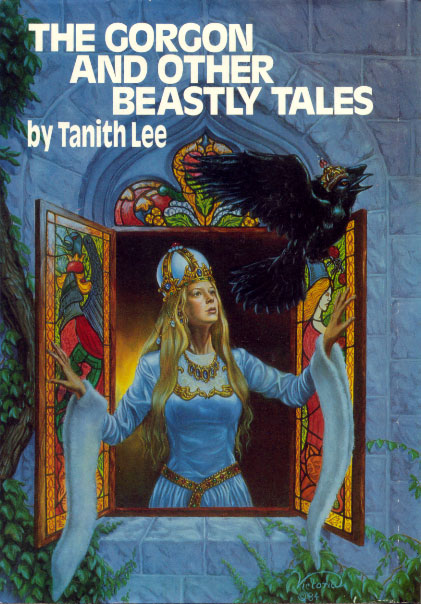Summary:
 The writer/narrator vacations on the island Delphaeu for a writing retreat. Blocked, he wants to visit a nearby smaller island, Medusa's island. He's warned off but goes anyway after some difficulty.
The writer/narrator vacations on the island Delphaeu for a writing retreat. Blocked, he wants to visit a nearby smaller island, Medusa's island. He's warned off but goes anyway after some difficulty.After encountering statues, he meets a masked woman with whom he becomes briefly infatuated until she removes her mask.
Commentary:With the recent passing of Tanith Lee, I revisited a few stories. This is one of my favorites. It choked me up and kept me thinking about it hours after I read it--at least the version I interpreted it as.
I don't read it as speculative fiction. In one interpretation, it is simply the unraveling of a man, turned to figurative stone due to a woman's ugliness and deformity. It suggests that perhaps these were what froze men back Greece's myth-wielding days.
The powerful version, though, is that the narrator meets a woman socially crippled. She must sequester herself on this tiny island away from humanity. When our narrator meets her, hidden behind a mask, he is smitten. Once revealed, her face repulses him. Rather than responding with sympathy (although he does to a degree), he worries about his own lot, his writing block. In this manner, he is turned to stone. He believes she despises him for his comparative lack of real troubles. It's hard to compare one man's troubles to another, but the narrator does seem petty, especially blaming his block on her when it had begun weeks earlier.
Is he an unreliable narrator? It's hard to say. Neither the opening nor closing gives clues. An islander calls him a "big writer," suggesting inflated ego, but he doesn't seem to see himself this way in his own thoughts. Maybe he has unwittingly represented himself this way, but it's never shown explicitly. The evidence is thin. Moreover, even Pitos thinks of the island as scaring away even fish. So maybe the lack of sympathy is society-wide; hence, the gorgon's solitude.
It may be Lee's modus operandi to guide the overall narrative thrust rather than the text itself to lead readers to this conclusion.

No comments:
Post a Comment